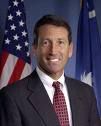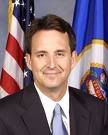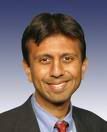The Employee Free Choice Act
Posted by Rob Barton in big three, chrysler, Employee Free Choice Act, GM, unions
 |
add to del.icio.us saved by 0 users |
The scariest section of text in the bill reads thusly:
`(6) Notwithstanding any other provision of this section, whenever a petition shall have been filed by an employee or group of employees or any individual or labor organization acting in their behalf alleging that a majority of employees in a unit appropriate for the purposes of collective bargaining wish to be represented by an individual or labor organization for such purposes, the Board shall investigate the petition. If the Board finds that a majority of the employees in a unit appropriate for bargaining has signed valid authorizations designating the individual or labor organization specified in the petition as their bargaining representative and that no other individual or labor organization is currently certified or recognized as the exclusive representative of any of the employees in the unit, the Board shall not direct an election but shall certify the individual or labor organization as the representative described in subsection (a).
Since I started hearing about EFCA, all I have heard about is doing away with the secret ballot. What most people that I talk to seem to think is that instead of voting secretly, they will still be able to stand up during a vote and declare whether or not they want a union in their workplace. This is not so. What EFCA is trying to accomplish is the abolition of the vote altogether. Simply by signing a union card, you are casting your vote. In the past, signing a card meant nothing more than saying that you supported an election. Many people will sign the card thinking that this is still the policy.
With this slick little piece of legislation a union could easily turn a non-union company into a union company. Let's say a company has 200 employees, but seasonally hire 100 more employees to handle a larger workload. The union could flood the application pool with its supporters. All the union would have to do is get 50 more cards signed. One quarter of the the companies regular employees would, in effect, be deciding the union question for the other 75%. Under the system now, a vote would be scheduled, and by the time it is held, the seasonal workers would be gone. The union could get away with it, too. All it has to do is to pay its members while they look for jobs at non-union companies. It already pays its members to picket and disrupt businesses, so it's not too much of a stretch.
From the AFL-CIO website:
Here's Why We Need the Employee Free Choice Act:If they left wages alone, then the cost of living would be reigned in by wages. It's funny how businesses, when left alone, will not produce items that they cannot sell.
America's Working Families Are Struggling
The middle class is stressed and shrinking, and working families are finding it harder to make ends meet. Wages just aren't keeping up with the cost of living, and job security, health coverage and the promise of a secure retirement are vanishing. Workers are hurting, and the entire economy is feeling the effects.
Corporations and CEO's have all the powerDuring all of the attempts at organizing that I have been through, management has been very careful with what they say. It all seems to boil down to one rule: "No organizing on the clock. Save it for your breaks, lunches, and free time." That's it. Never have I heard, "If you vote for the union, you are fired."
Corporations and CEOs aren't treating workers fairly. They cut back on workers' health care and wages, while CEO pay skyrockets. They intimidate workers who join together to negotiate a contract, while protecting their own perks and benefits.
But the system is brokenLook at the workers of GM and Chrysler and see where all this bargaining has gotten them - the same pay rate as non-union workers from foreign auto makers and a soon to be bankrupt company.
The best opportunity we have to rebuild the middle class and put workers on the right track is through giving workers the power to bargain for a better life. Union workers have better wages and are more likely to have health coverage, pensions and protections on the job that non-union workers—and where unions are strong, even non-union workers get better pay than in areas where unions are weak.
The Employee Free Choice Act Will Help Build an Economy That Works for Everyone
Unfortunately, current law puts the decisions about forming unions and bargaining in the hands of corporations, not workers. In our company-dominated system, corporations deny workers the freedom to choose a union, and they have free rein to coerce, intimidate and even fire employees to keep them from forming a union to bargain for their economic well-being.
Again, never seen anyone fired during an organization attempt. The system being proposed here leaves too many holes for fraud and corruption.
I also got a good laugh when I read this:
Supported by a bipartisan coalition in Congress and millions of workers around the country, the Employee Free Choice Act would level the playing field and put the power to choose a union back where it belongs—in the hands of workers. It will restore workers' power to bargain for a better life, rebuilding the middle class and strengthening the economy for the long term.Their "bi-partisan" coalition consists of 279 members of the House and Senate. Of the 279, six are republicans from the northeast. Of the six republican, only four are still serving. In the Senate, there are no republicans signed on, just 45 democrats and two independents. That's very bi-partisan there, guys, way to go.














